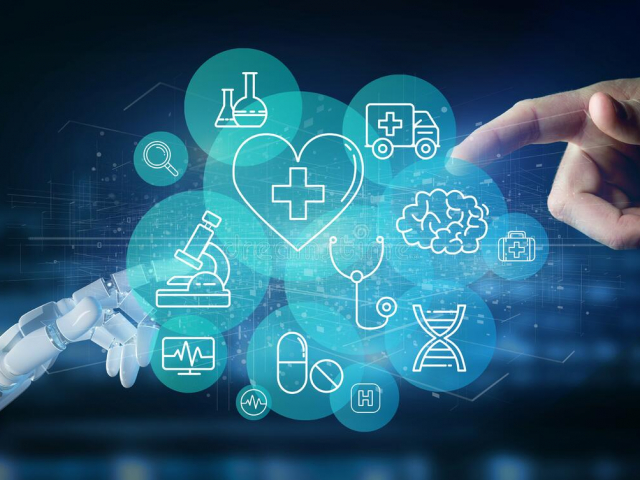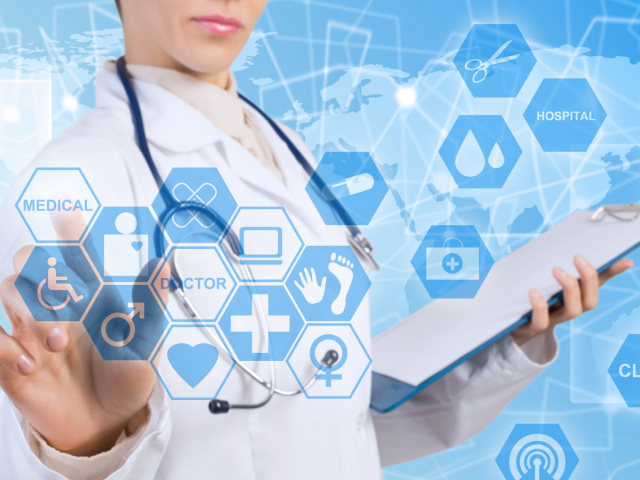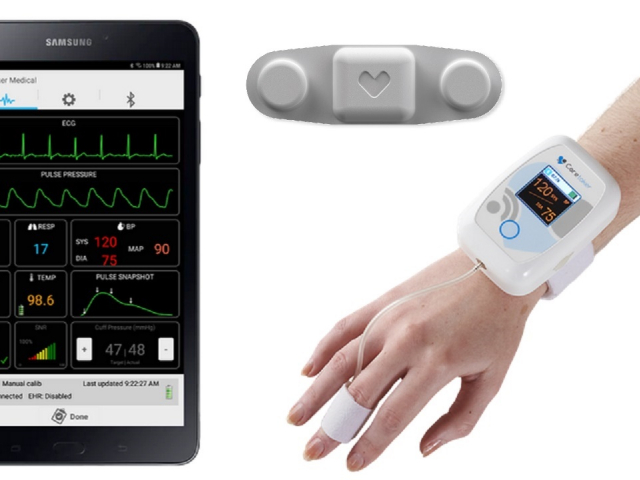
Digitalization of medical infrastructure
According to analysts, electronic databases have great potential. Their use will allow doctors of various specialties to treat one and the same patient simultaneously. At the same time, owing to this innovation, patients will be receiving treatment faster, and medical expenses will be lower. Electronic health records will bring forward electronic prescribing, thus providing access points to specialized medical apps. Database monitoring and therapy selection based on Big Data will be the next step, according to experts.

Services for elderly (preventive medicine)
Digitalization of the medical industry will ensure the launch of cost-effective and relevant projects. First of all, that concerns elderly patients whose health requires constant monitoring. With an increase in chronic diseases and an overloaded healthcare system, there is a growing need for alternative ways of caring for the elderly. Doctors turn to AI algorithms to measure heart rate as well as to identify borderline stress and endocrinological conditions. Preventive medicine is the practice of promoting preventive health care to improve the well-being of elderly patients.

Medical sensing as part of Internet of Medical Things (IoMT)
Medical sensors monitoring changes in the patient's health will become an indispensable tool in the next decade. Thanks to miniaturization, customization, and digital signal processing, the Internet of Medical Things will hardly do without sensors. Compact sensors helping patients make diagnoses themselves are considered to be the most popular. Health monitoring systems controlling the process of making a diagnosis and selecting therapy will also become common in the IoMT in the near future. Such innovations are also useful in bionic prosthetics.

Smart medical textiles and devices
Most patients are aware of smart devices such as fitness trackers, watches, and heart rate monitors. However, progress does not stand still and smart textiles are now taking the lead among medical devices. They are actively used in the health care of a number of countries. For instance, in Japan, there is smart clothing. In Germany, they have smart bedding and dressings. In France, they monitor mobility using Digitsole smart shoes. Smart textiles are designed to monitor the patient’s physical health and help care for them.

Local treatment of oncological diseases
Biotechnological innovations aimed at preventing and treating cancer are used in a wide range of fields. Their further development is related to biopharmaceuticals, protein design, and genome editing. Local medicine is successfully used for treating cancer and other critical health conditions. Special devices are used for monitoring the patient's health and conducting virtual trials. Such tools include artificial intelligence (AI), mobile devices, and analysis modules. With their help, doctors can monitor patients with chronic disorders, oncological and cardiovascular diseases, etc. AI is commonly used in operational diagnostics, analysis of rare diseases, and personal drug selection, as well as the development of molecules with the use of digital data.
 English
English 
 Русский
Русский Bahasa Indonesia
Bahasa Indonesia Bahasa Malay
Bahasa Malay ไทย
ไทย Español
Español Deutsch
Deutsch Български
Български Français
Français Tiếng Việt
Tiếng Việt 中文
中文 বাংলা
বাংলা हिन्दी
हिन्दी Čeština
Čeština Українська
Українська Română
Română
